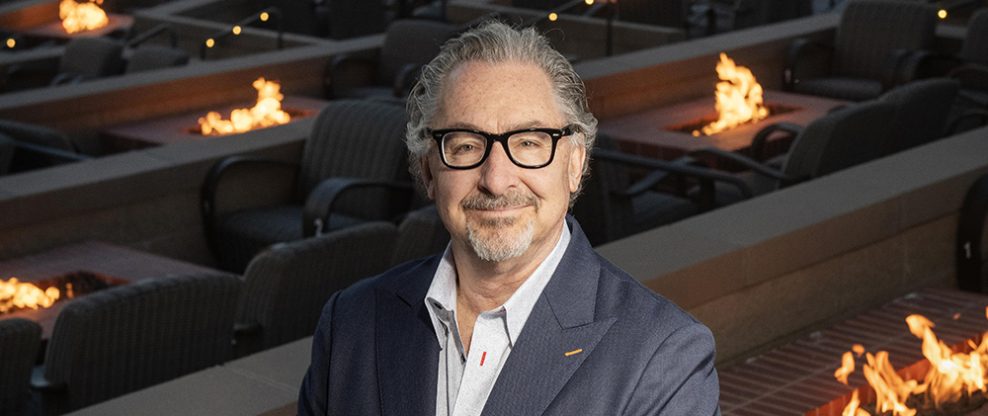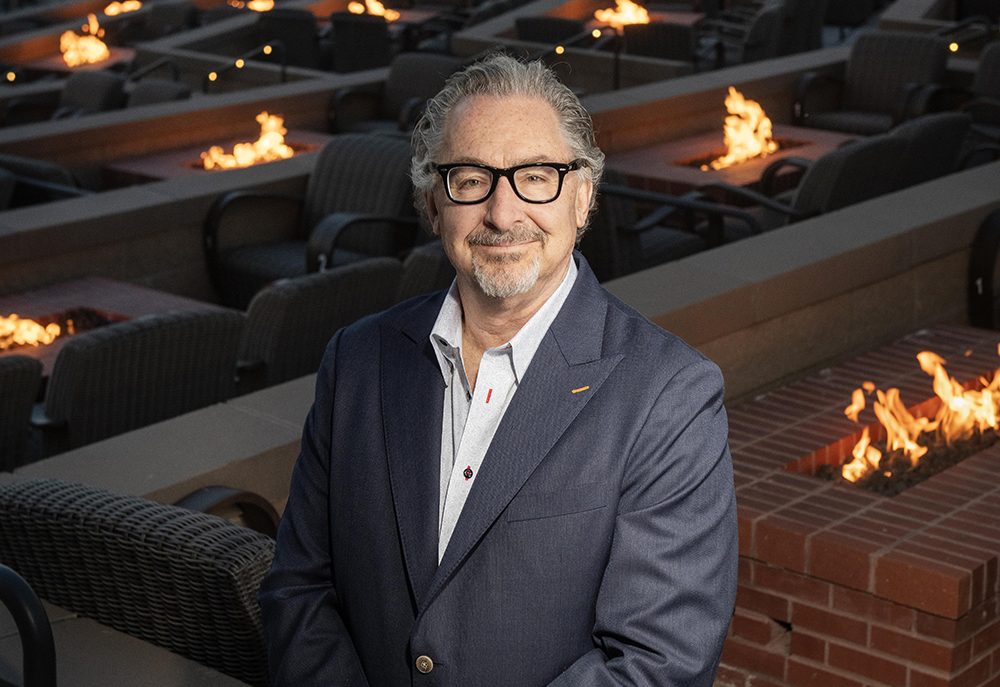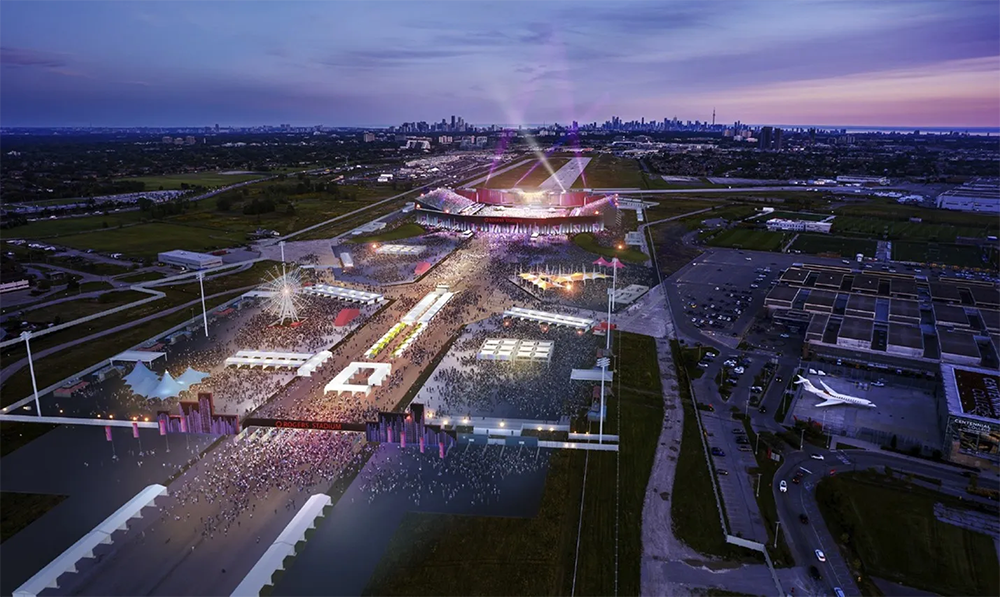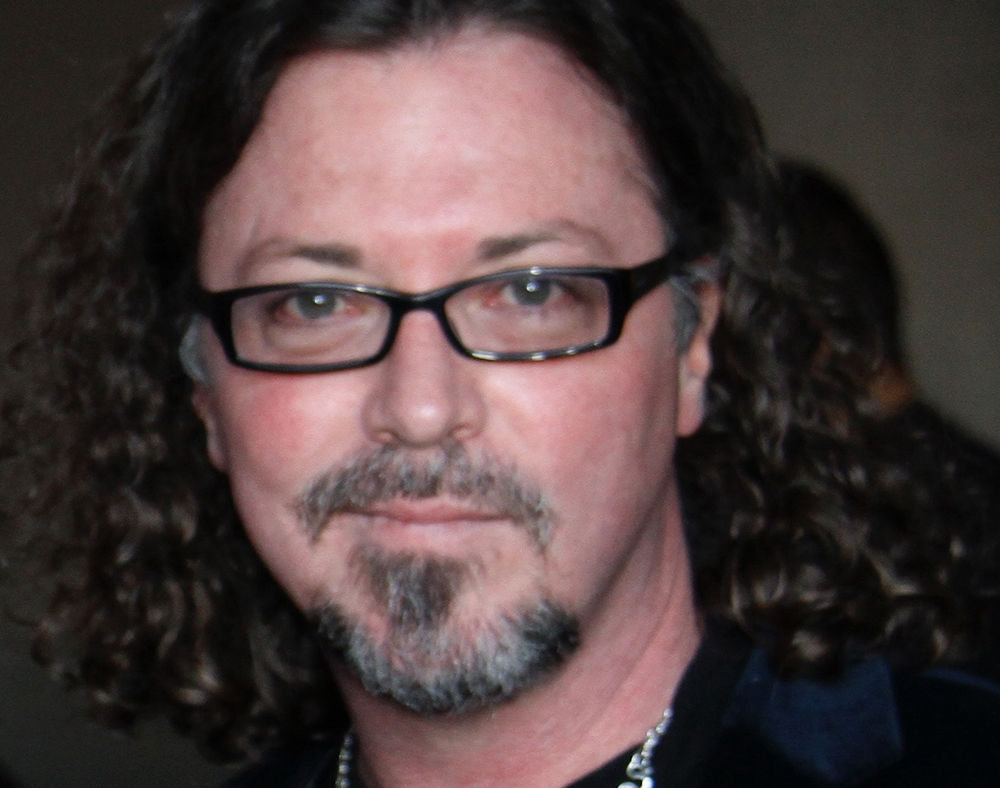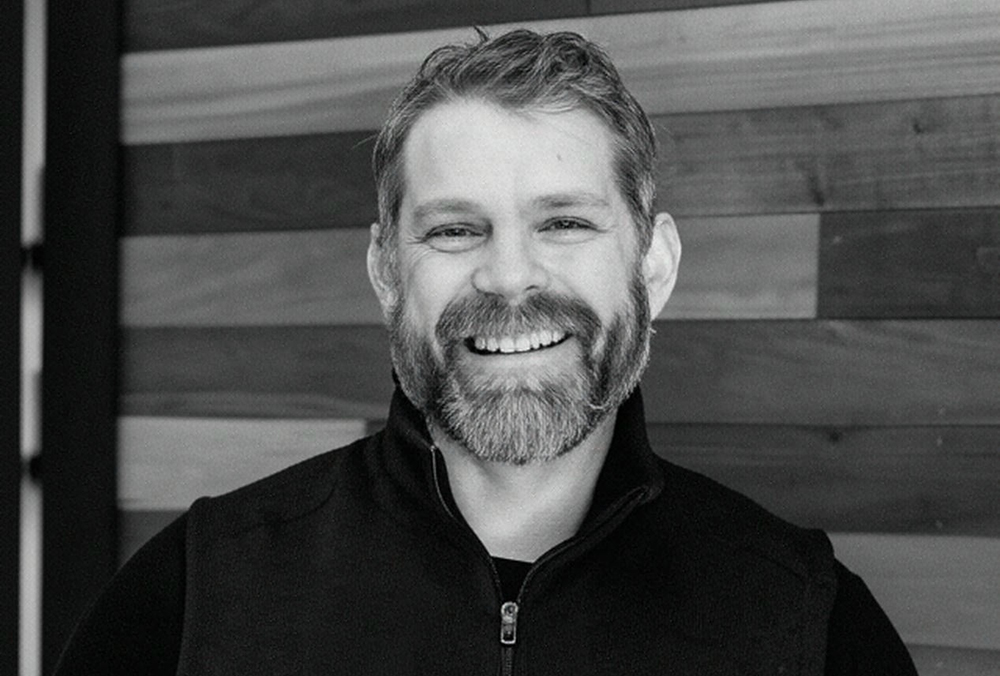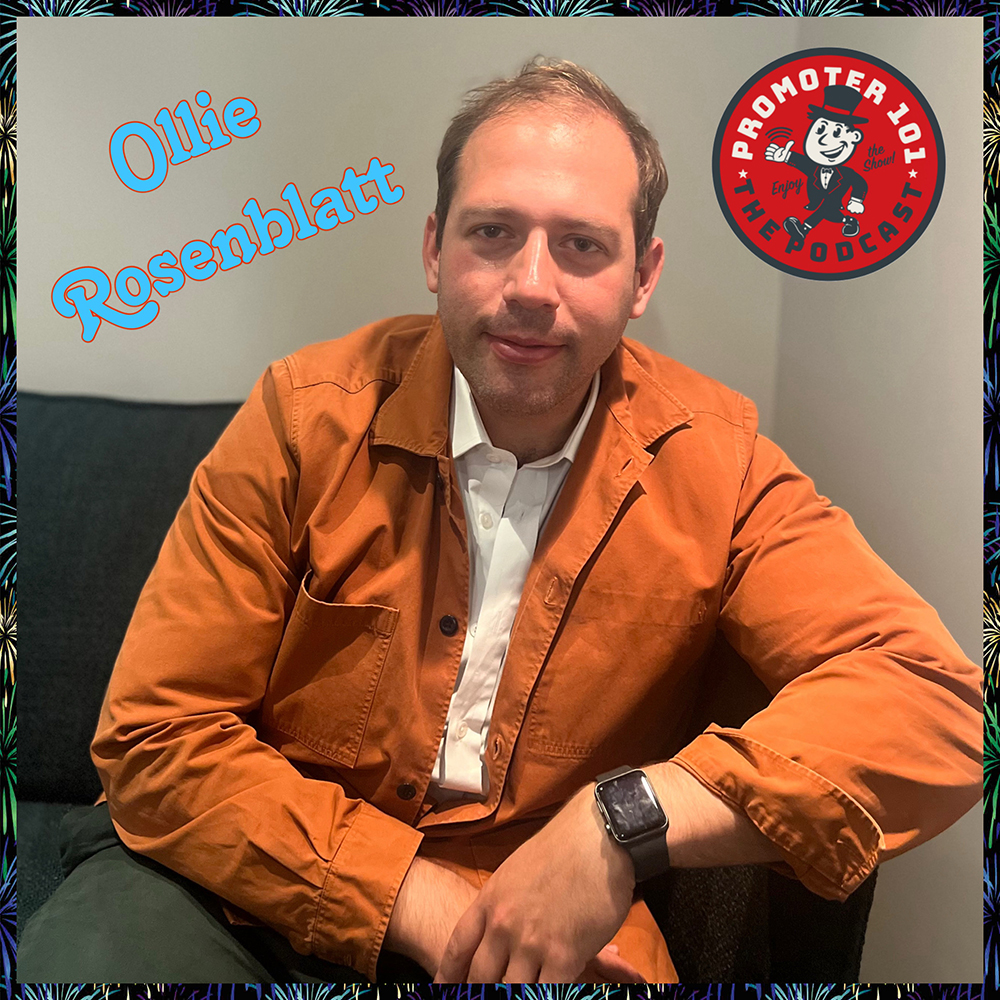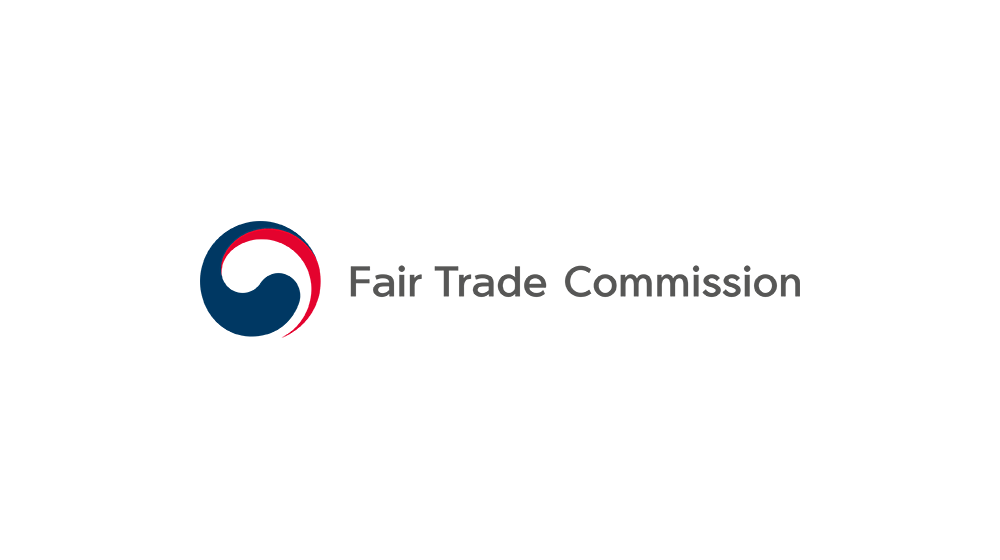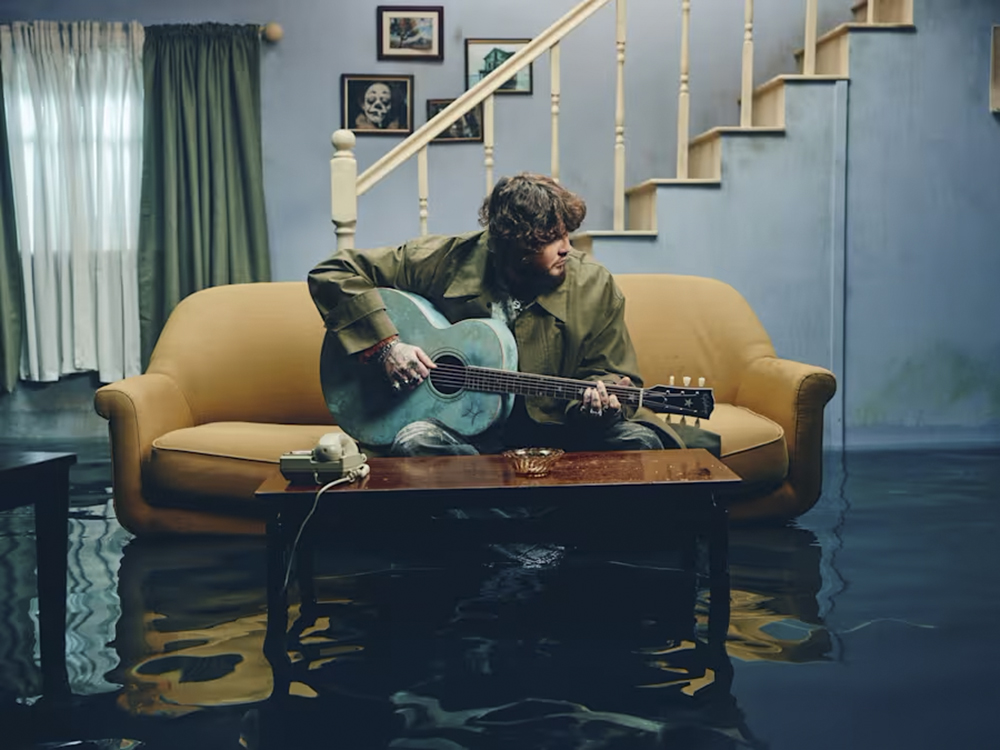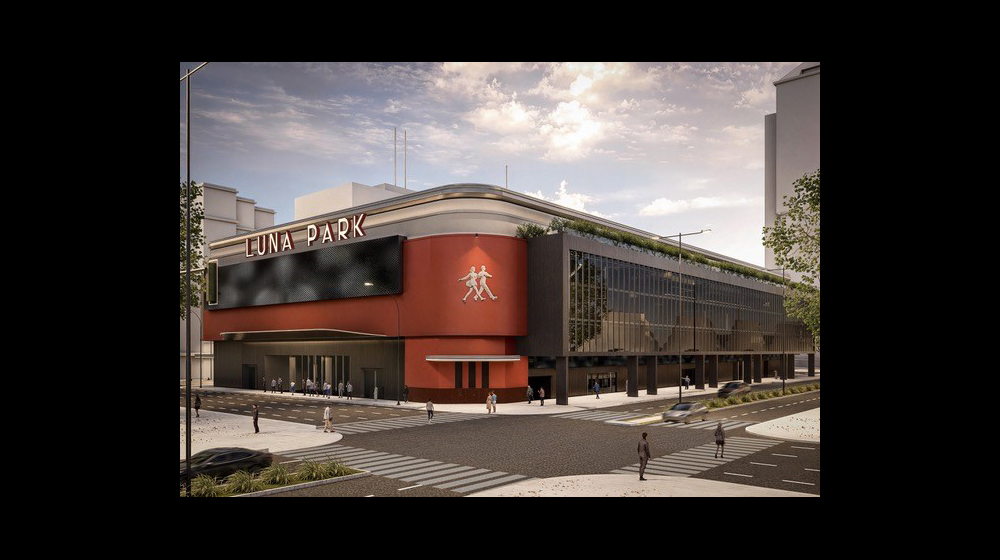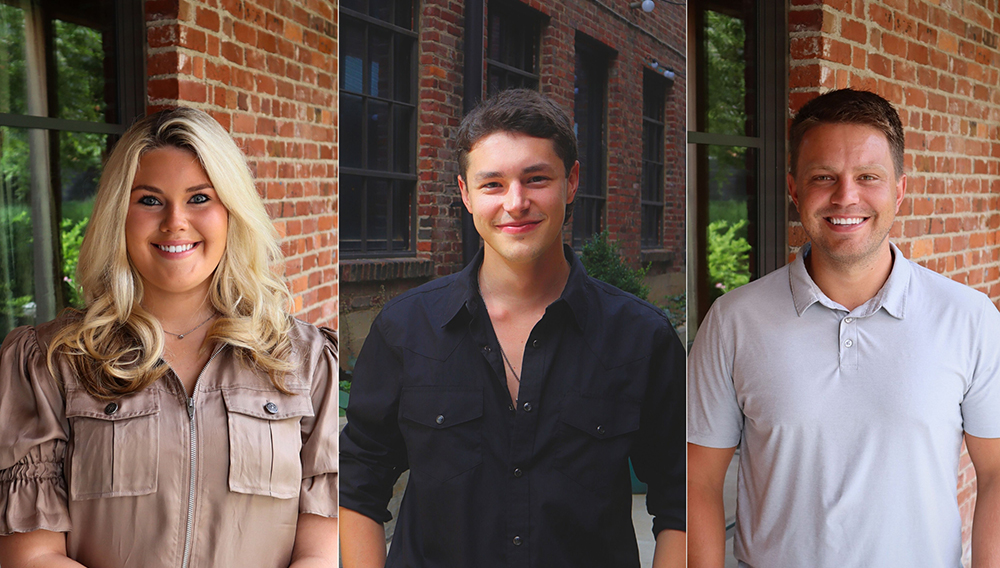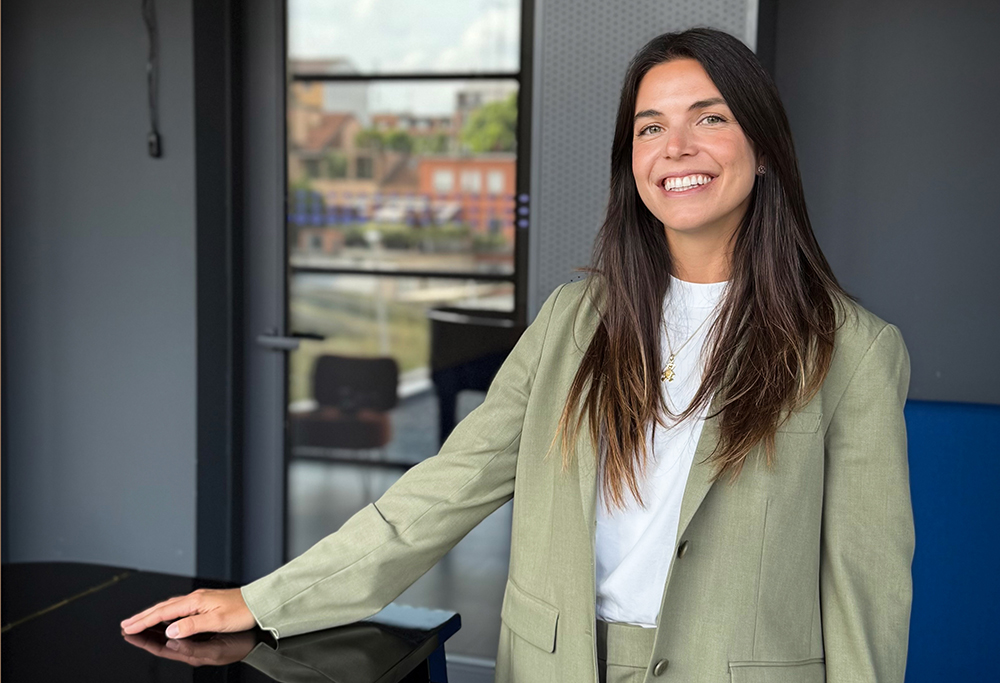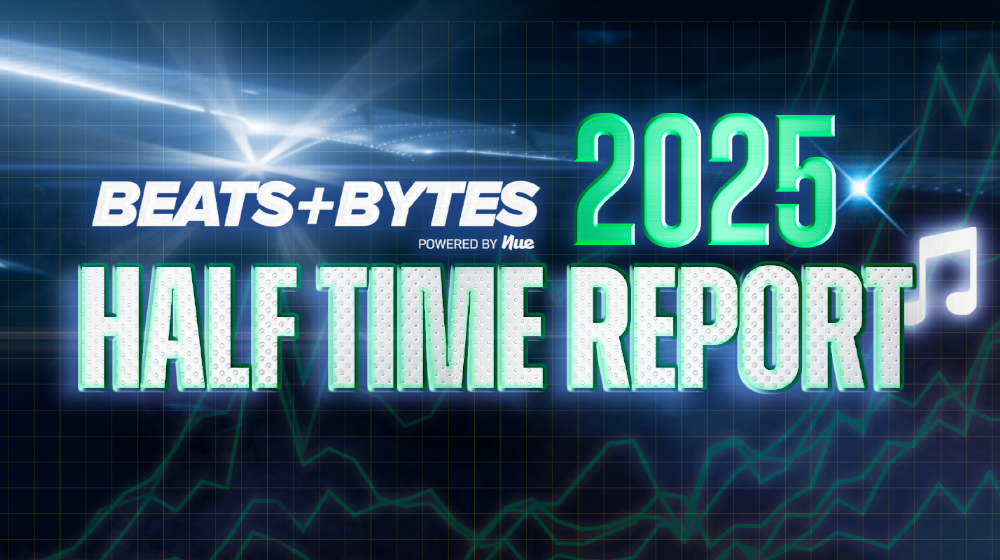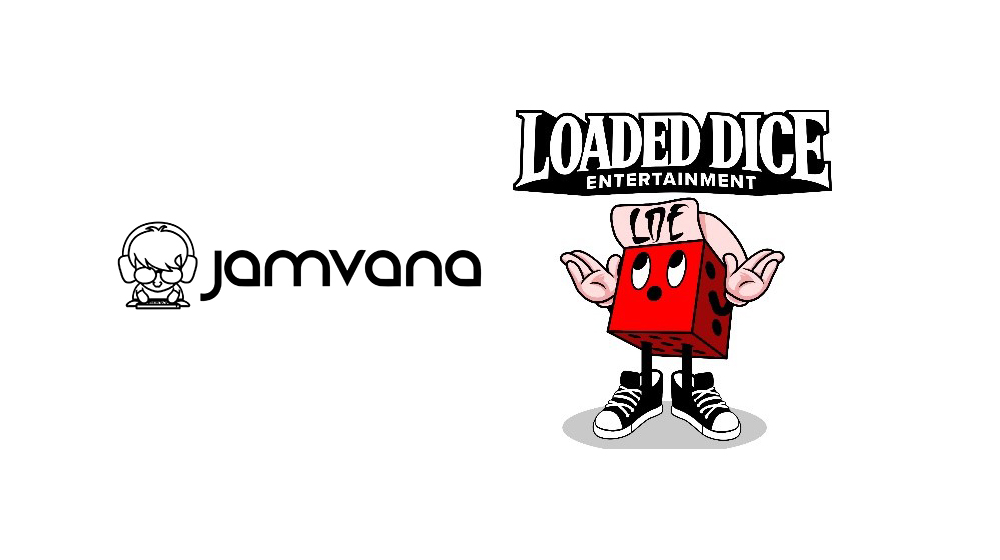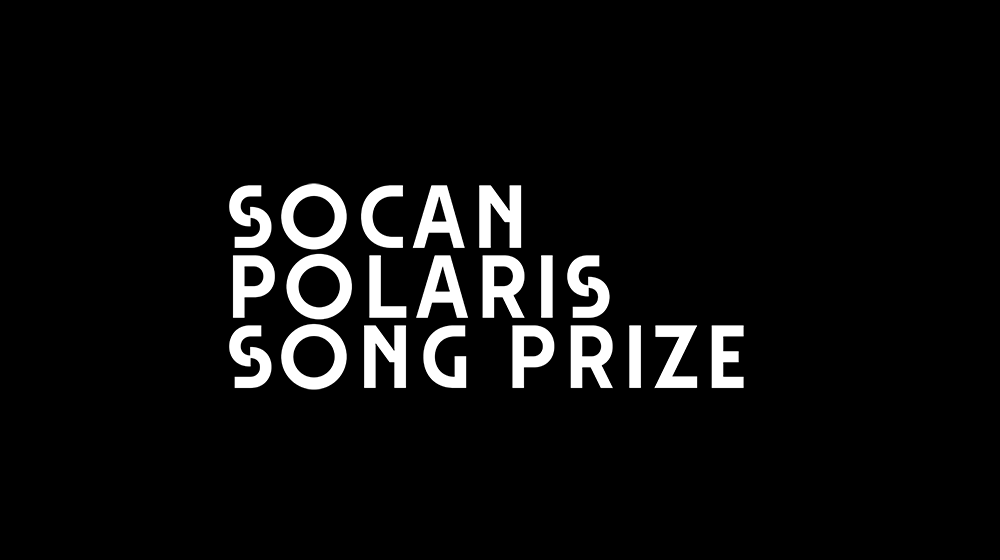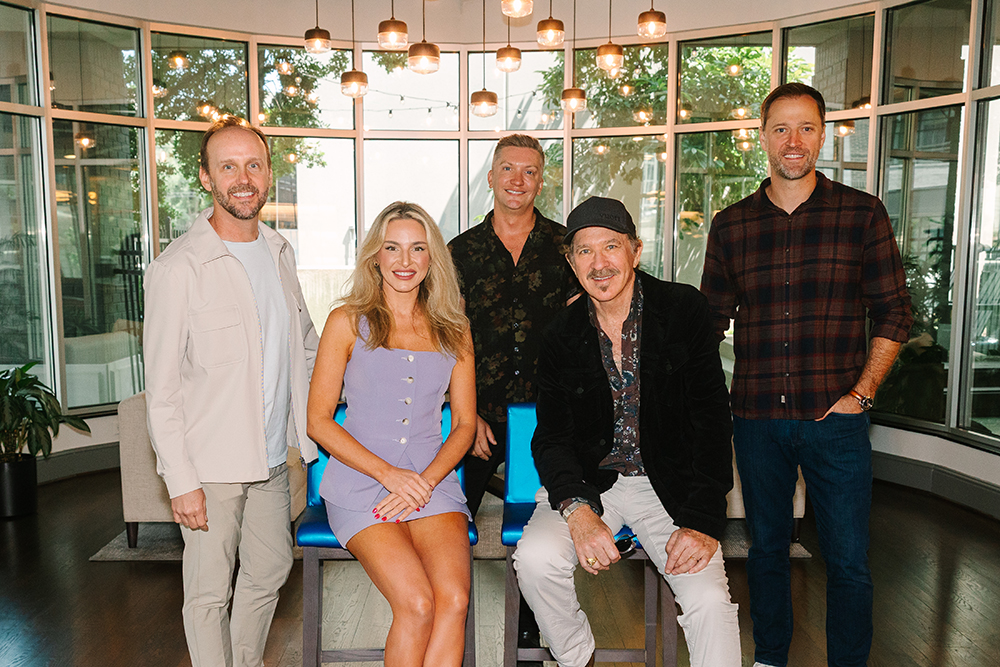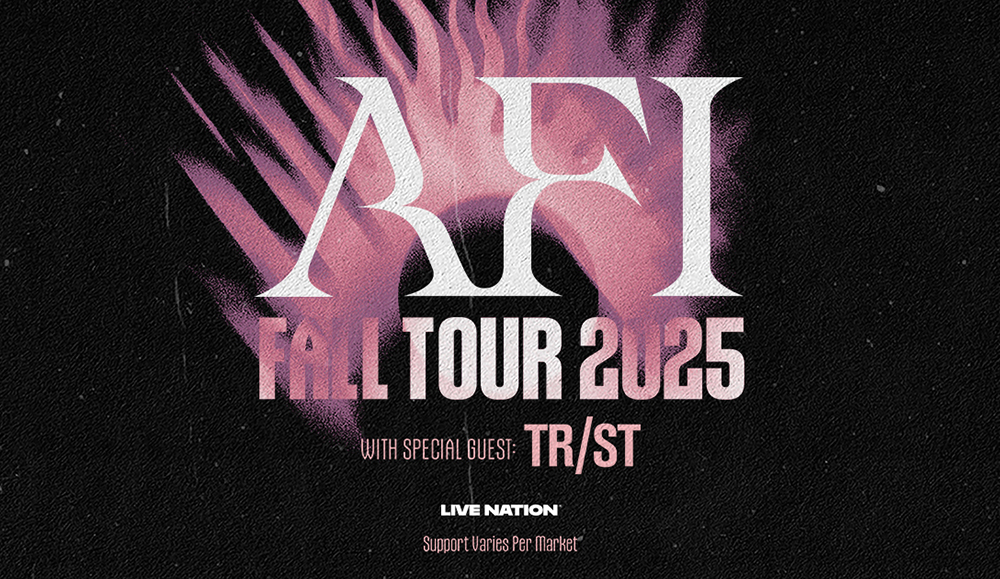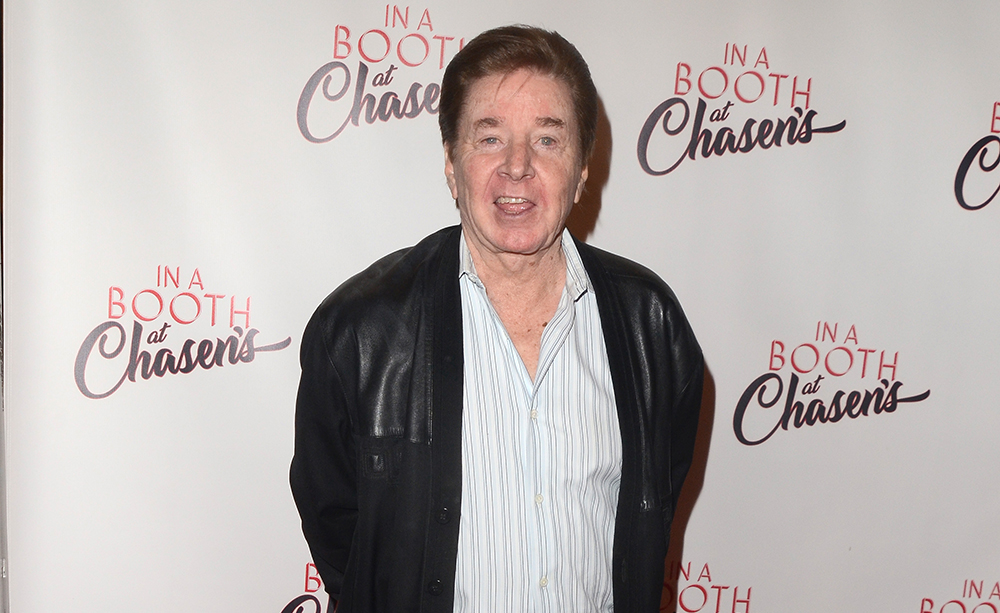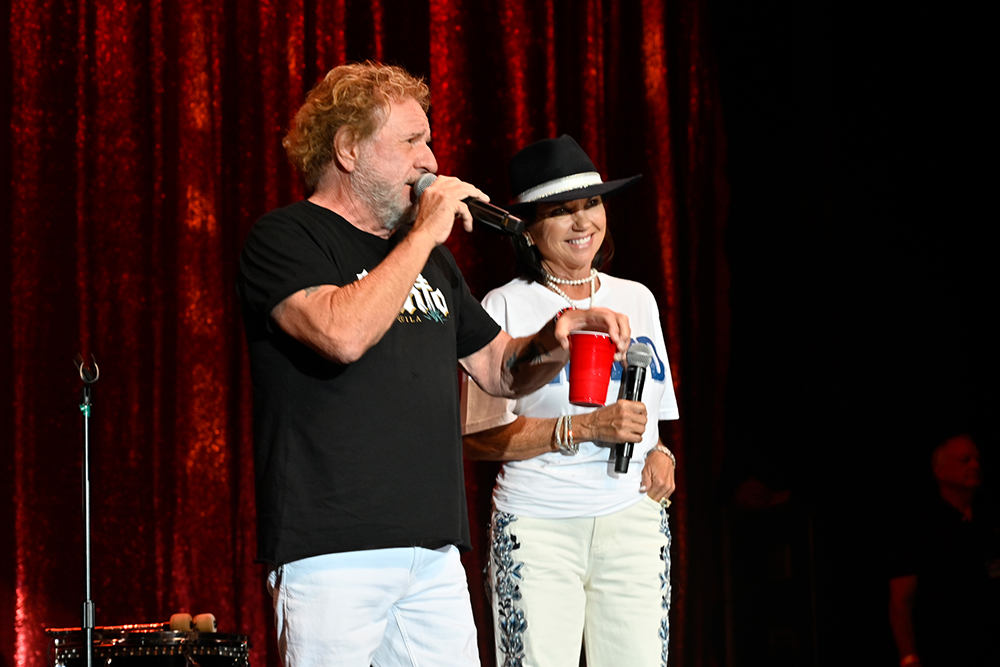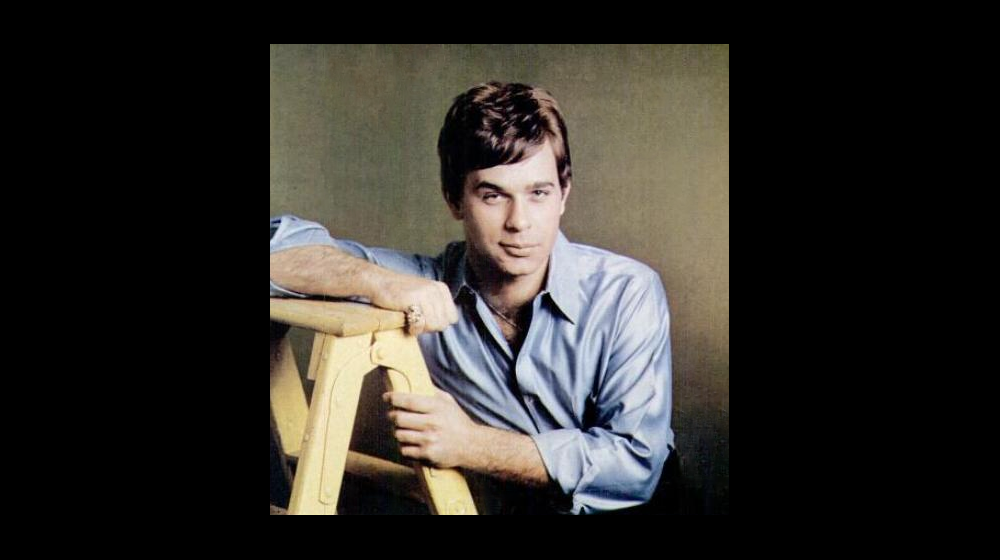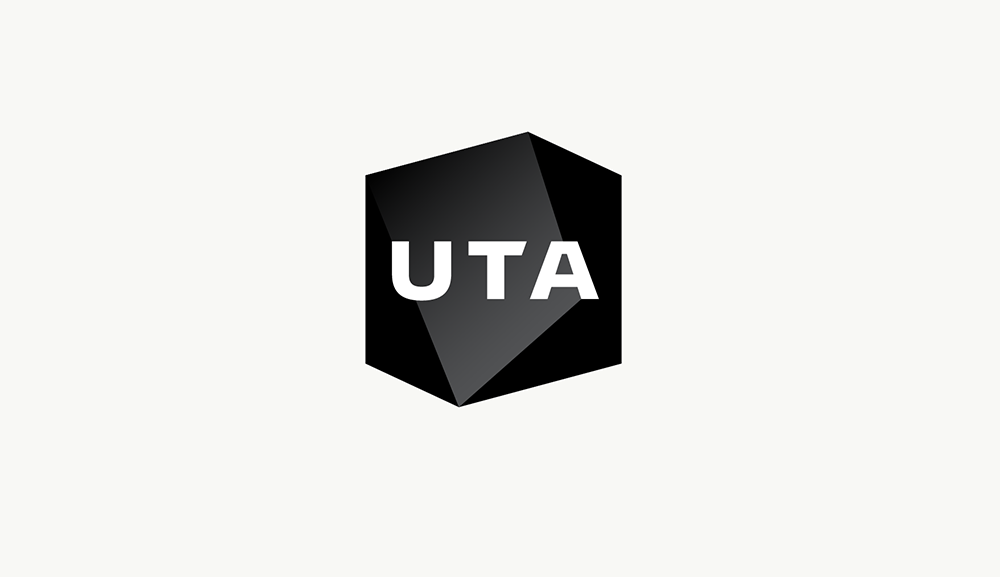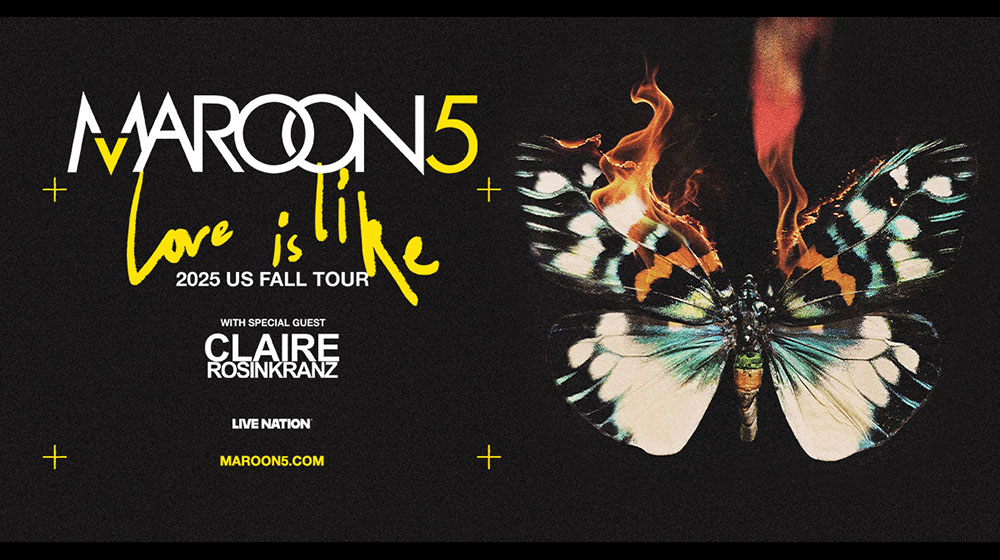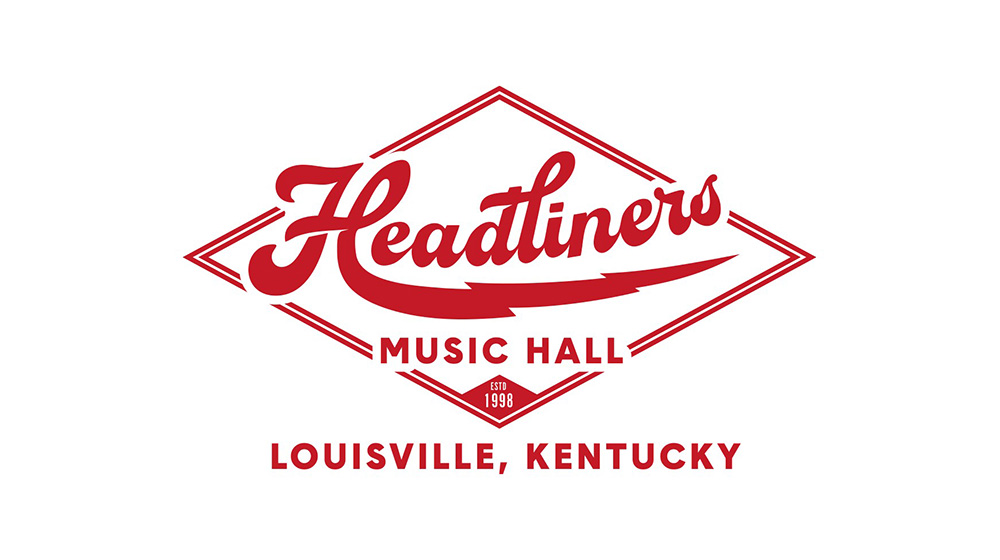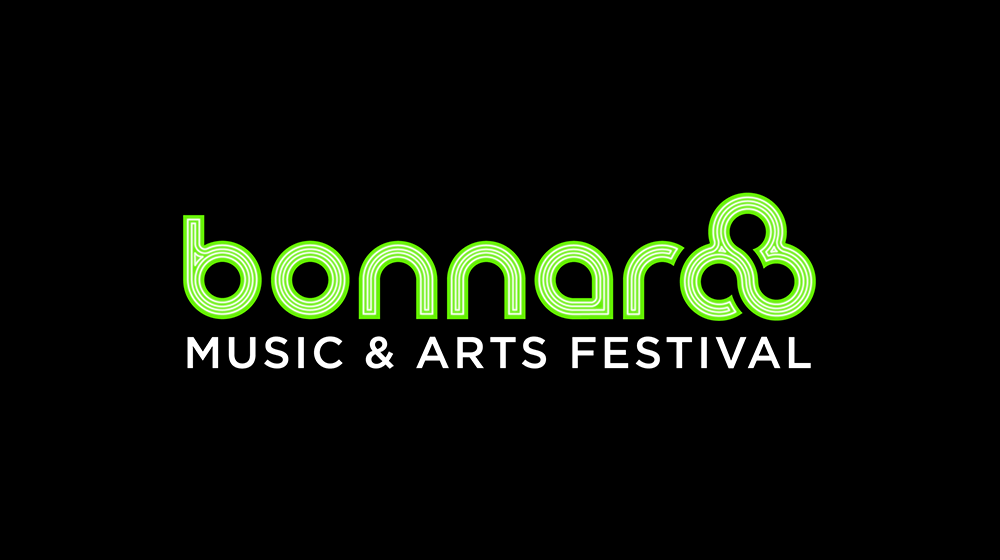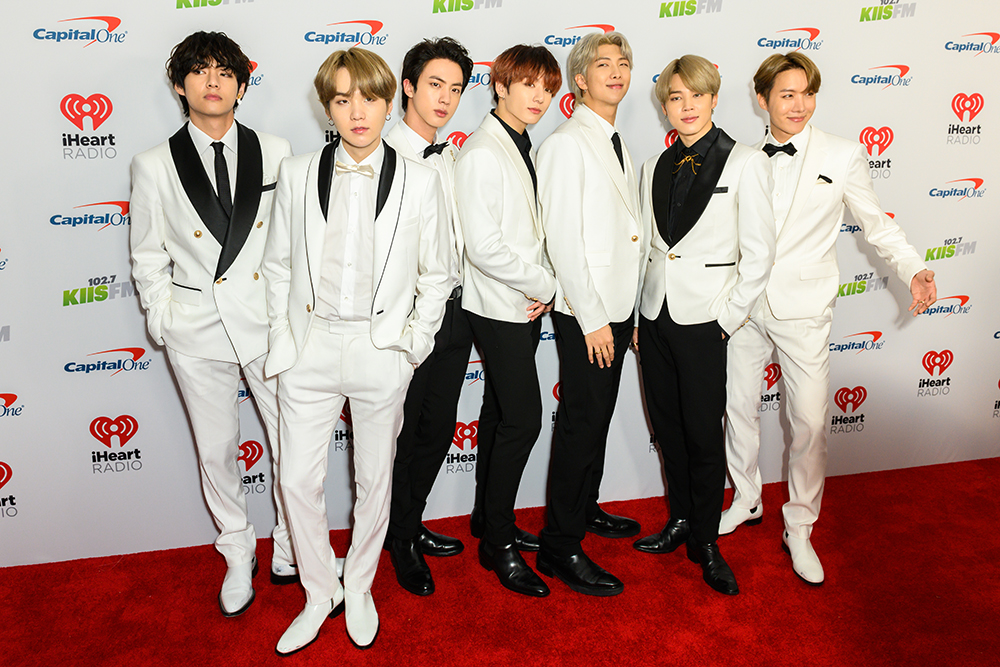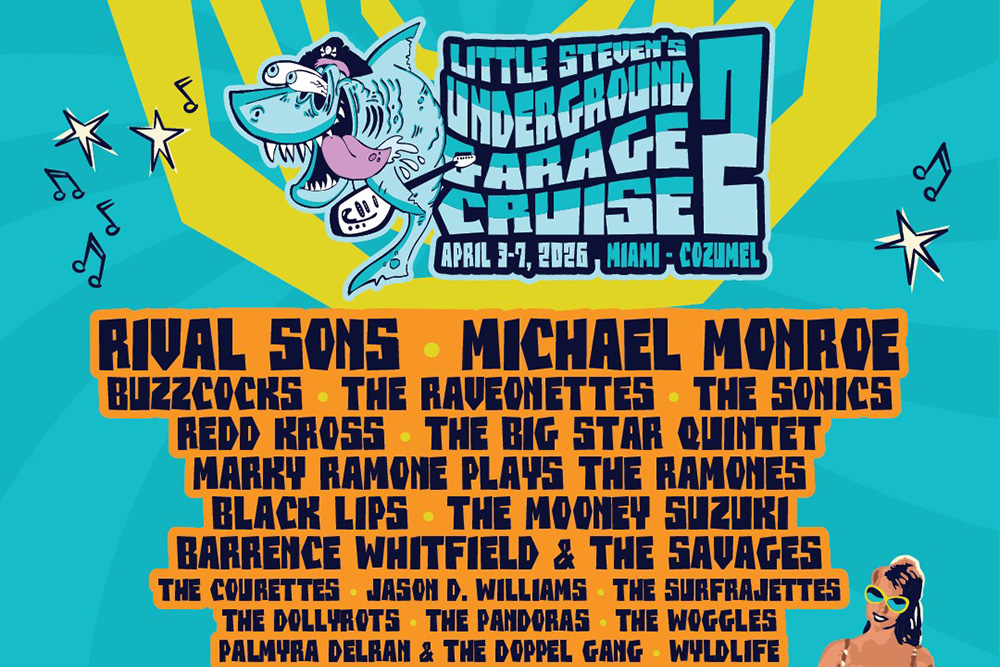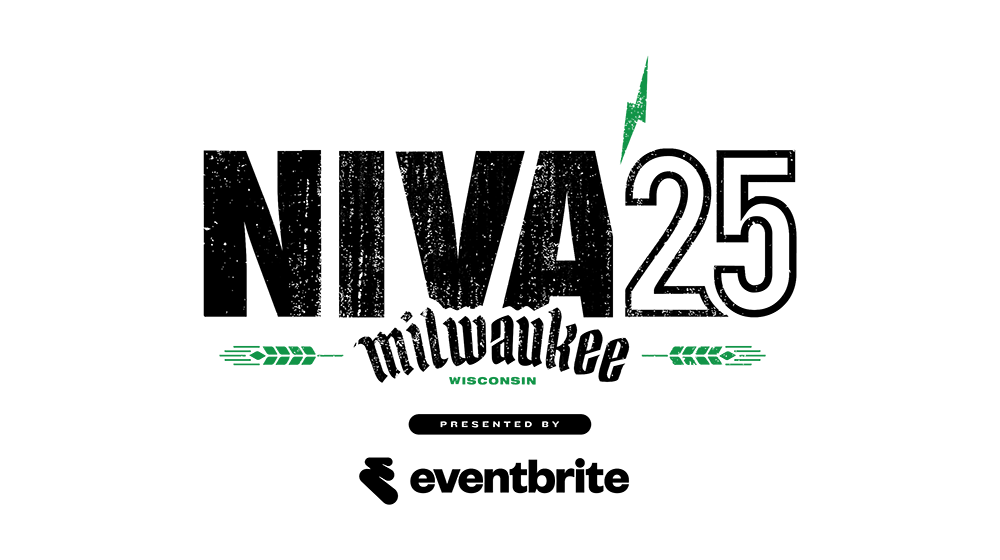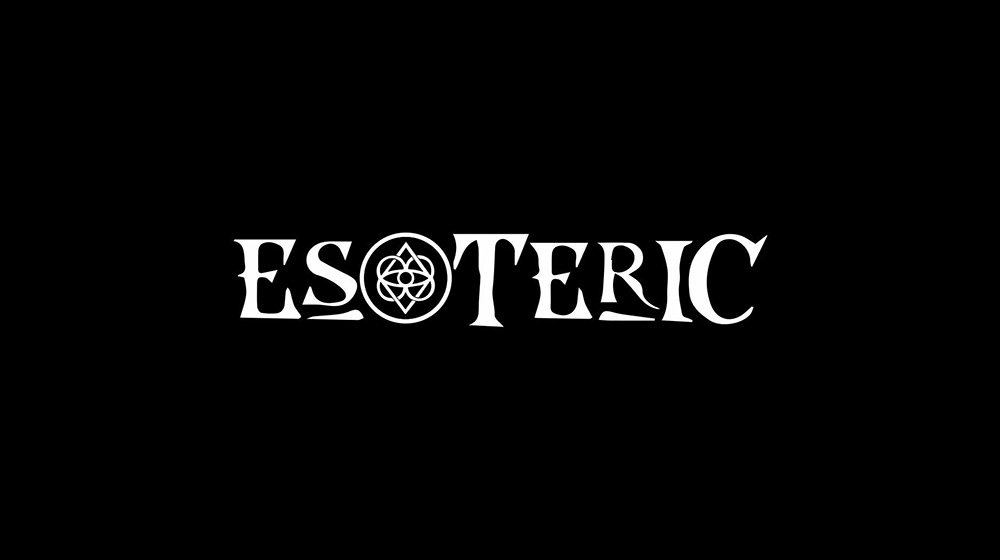This week In the Hot Seat with Larry LeBlanc: J.W. Roth, CEO, founder, and chairman of VENU.
America’s biggest music fan may also be its leading premium hospitality and live entertainment venue developer.
At the drop of a hat J.W. Roth, a big guy with black-rimmed glasses, salt-and-peppered hair swept back, and an electrifying pedal to the metal personality, will dive into talking about the unifying nature of music, and the unforgettable emotional dimensions of live performances.
The way Roth views his station in life is that he’s in the business of creating memories for today’s music fans and bringing people together.
The slogan “fan-founded and fan-owned” is in the opening words of his company’s mission statement.
From his corporate headquarters in suburban Briargate in Colorado Springs in Colorado, Roth as its CEO, founder, and chairman will run down the strategic expansions and new partnerships of his VENU company, and how it is crafting luxury artist-centric entertainment destinations that are absolutely unique to the live music sector.
Founded during the COVID-19 pandemic by Roth and a group of investors, VENU currently operates entertainment venues in Colorado Springs and Gainesville, Georgia, with an additional $2 billion worth of construction currently underway or near underway in Centennial in Colorado; Broken Arrow, and Yukon in Oklahoma; and El Paso, and McKinney in Texas.
VENU’s business model leverages varied revenue streams. The company generates substantial income through securing sponsorship and strategic brand partnerships that include naming rights and in-venue sponsorship activations.
Ticket sales and fees also contribute significantly, driven by national touring acts, VIP experiences, and premium seating options.
Food and beverage sales from upscale dining and beverage service further enhance revenue across VENU’s facilities.
Additionally, VENU generates revenues from parking fees, and venue rentals, as well as fee income derived from strategic partnerships, licensing agreements, and premium hospitality services.
Roth is also founder and chairman of Roth Industries, and co-owner and co-founder of Pikes Peak Media Company, the parent company of The Colorado Springs Independent, and The Colorado Springs Business Journal.
Venu Holding Corporation went public as VENU on the New York Stock Exchange on Nov. 27th last year. The company, which had developed the 9,570-seat outdoor Ford Amphitheater on the north side of Colorado Springs, offered 1.2 million shares of its common stock for an initial offering of $10 per share, for gross proceeds of about $12 million.
Ford Amphitheater was initially called the Sunset Amphitheater before VENU put naming rights up for auction, and the rights were sold to about 40 Ford dealerships in Colorado. The auction helped fund the project, and the practice continues for upcoming Sunset Amphitheaters.
At the market’s close the first day VENU’s shares were selling at $10.12 each, with a daily range between $10 to $10.80, data on Stock Analysis showed. The company’s total net worth was $387.39 million, and its enterprise value $391.91 million. The company’s stock held by its shareholders totaled 38.28 million shares.
Ford Amphitheater is near VENU’s rebranded Phil Long Music Hall at Bourbon Brothers in Colorado Springs. The midsize live music venue with seating up to nearly 500 people, opened in 2019 next to the Bourbon Brothers Smokehouse & Tavern restaurant, also owned by VENU as part of an entertainment complex in the Polaris Pointe suburb. Also unique to Colorado Springs is Notes Eatery.
VENU also owns a Bourbon Brothers Smokehouse and Tavern, and an adjacent Boot Barn Hall in Gainesville, Georgia.
Roth, a fifth-generation Coloradan, grew up in the ’70s on a ranch in Greenland, just north of the El Paso County line, and first built a successful career in the prepared foods industry.
Roth plans to roll out 20 large-scale multi-season premium amphitheaters within five years that will hosting between 12,500 and 20,000 guests.
Prior to launching VENU you first built probably the largest fire pit in America in the backyard of your home in Colorado Springs.
Essentially, you then replicated your backyard environment in building 133 fire pit suites at the open-air Ford Amphitheater where 8 people can sit around a fire pit, eat and drink, and watch a great show.
We did. I started by building the fire pit. All our parties happened around the fire pit, and the bandstand in my backyard. I now sell fire pits to music fans, and to investors. Basically, that fire pit (with VENU) is a fractional ownership in the (separate) venue. And yes, that idea came from what I think is the largest residential fire pit in the world in my backyard.
In a 2018 Live Nation study, “The Power of Live,” which looked at music trends among 22,500 13-to-49-year-olds from North and South America, Europe, Asia and Australia, 73% of participants identified with the sentence, “Now, more than ever, I want to experience real rather than digital life.”
It’s not hard to imagine that the desire for authentic, rather than online experiences has increased following the COVID-19 pandemic.
As many Americans are arguably seeking quality entertainment experiences, other than simply walking into a bare-bones stadium or arena, you singlehandedly are intent on addressing the concerns of today’s live music concertgoer.
Listen, when I was younger with my wife, I would take her to a place where we would sit on a muddy lawn and watch great music. Well guess what? As our demographic changed, as we got older, and she got a little bit better financial status, she decided that she wants a premium seat. She’s not going to do all the things that we did when we were kids. That’s what happens. The demographic for music has really started to gravitate to premium seats. You don’t see the cheap seats as you used to.
Your first date with your wife Kilyn was a Lynyrd Skynyrd concert in 1996 at the Fiddler’s Green Amphitheatre (renamed Coors Amphitheatre in 2004 and again renamed Comfort Dental Amphitheatre in 2010).
That’s true. If I was taking Kilyn to a show back when we were dating, I would rather sit on the lawn and snuggle with her anyway to be honest with you. You know what? We were kids, and I think that is the great thing. And today we are old folks.
Faced with crappy seating, massive traffic congestion, pricey hot dogs and cheesy nachos, and salt-sprinkled fries, and often poor security, many older people are reluctant to see concerts in some arenas or stadiums.
It’s common today that spectators will stand at seated arena, stadium, or festival shows. Even where the seats are up higher, and there’s no real reason to stand. With floor seats, you are likely standing for many shows. Younger people are apt to stand for the full show.
Right, that’s why you get a beautiful fire pit. And you would have cocktail service right to your fire pit, and you would have the best sight lines in the house and never stand up.
Your vision for the Ford Amphitheater, and for the VENU amphitheaters that have followed evolved from lessons provided by such high profile sports figures as the late George Steinbrenner, the former owner of the New York Yankees, and billionaire businessman Jerry Jones, the owner, president, and GM of the Dallas Cowboys, in creating venues that provide an elevated live experience.
Your wife, like many other wives, likely complained about going to clubs with sticky tables, or standing in an open-air amphitheater or in a field of mud being pelted by rain to experience great artists playing music. I’ll bet that you and her sat in the famously hard bleacher-style seats at Red Rocks Amphitheatre near Morrison, Colorado, approximately 10 miles southwest of Denver, and you both said, “This could be improved.”
My wife is not going to any place where there is a long line at the girls’ bathroom. She is not going to walk through a scary parking lot. She is not going to go to a place where there’s a sticky table full of bad food. I’m the kind of guy that is going to go to a place where you could possibly lose a tooth because that is what great music is, right? My wife is not going to any place where you could possibly lose a tooth or have a long line at the girls’ bathroom.
At the same time to fund much of your amphitheaters’ costs you need to book leading music acts that assuredly attract a younger demographic mostly seeking to connect with their favorite musicians on a personal level in a rarified atmosphere.
Whereas for those seeking luxury seating, and are interested in buying Fire Pit Suites, they are a well-established, older demographic group of music lovers who can afford to splash out on their very own Fire Pit Suite.
Expanding with new open air Sunset Amphitheaters in Oklahoma and Texas, VENU’s upcoming venues will host between 12,500 and 20,000 spectators, and will be among the largest amphitheaters you will have.
That’s right. To date, that is exactly right. And so the next thing that I needed to do was to figure out how to enjoin you (investors) to finance me. So I came up with the idea of fractional ownership.
About 30% of your start-up funding for an individual amphitheater comes from investors who purchase Fire Pit Suites, amenities, and owner’s clubs via exclusive fractional ownership opportunities.
What you really want to do is to harness the power of the live entertainment experience so all fans attending will watch a concert, and have beautiful memories for years to come.
That is exactly what I am looking for. For the fan first and foremost. Everything that I build I build with my fan hat on. At the end of the day, I am driven by sort of a passion to build what I believe the fan of today wants. The fan of today is very much more demanding than they once were. Think about 40 years ago when you and I were going to shows. There were no such thing as rideshare for example. There wasn’t Ubers and Lyfts and all of that. So at my amphitheaters, I built three lanes of pure rideshare so it is easy to get in, and easy to get out. I am building everything for the demand of the fan of today.
Venu Holding Corporation, listed on the New York Stock Exchange under the ticker symbol VENU, has done quite well this year. Despite all of the market uncertainty, your stock price hasn’t dropped all that much.
No. I haven’t been punished like a lot of people have. With the exception of the overall economy, I’m just not affected by a lot of it. For example, let’s take tariffs, whether it’s steel or concrete or whatever it happens to be, I have had a little more flexibility and elasticity in my pricing, and I am able to absorb a lot.
(In Q1 2025, VENU reported its first quarter financial results for 2025. The company has revealed a 19% increase in total assets, now totaling $212,882,187 as of March 31, 2025, up from $178,417,515 at the end of 2024.)
You have an estimated $1 billion worth of construction going on?
Yes, we are currently building over a billion dollars in music amphitheaters, elevated music halls, and fan-first experiences on our way to $5 billion.
You are going to need steel while President Donald Trump boosted tariffs on steel and aluminum imports on June 3rd from all countries from 25% to 50%, though they could be dropped again. He has indicated that the measures are intended to secure the future of the American steel industry. However, the protections, if they stay in place, come at a punishing cost for American users of these metals like you.
You must have concerns.
I do but here is what I have the advantage of doing. I have the ability to be flexible in the pricing of our product. I sell fractional ownership which are my firepit suites, right? So if my firepits suites sales, let’s just call them from $275,000 to $300,000, my sales do not get affected at all, and they absorb all of the let’s say potential inflationary reaction to tariffs.
When you first built 133 firepit suites at Ford Amphitheater. You didn’t know if they’d sell or not. You put them up for sale, and in 14 weeks every single one was sold.
That’s right.
(Since launching VENU’s Fire Pit Suites fractional ownership model in late February—offering suite access at Sunset McKinney, and Sunset Broken Arrow with 25% down and 20-year financing— $12.5 million in sales has generated through March 31, 2025, out of the $38.7 million total offering.)
Fire Pit Suites sales have been exceptionally good. It is because they offer lifetime ownership access to each concert at a given venue, premium hospitality, meet-and-greet experiences, VIP amenities–and for you, potential multi-revenue stream returns.
Being that the Fire Pit Suites is a lifetime membership, it is ownership, right?
Yes. It’s ownership. Just like buying a condo. I build these amphitheaters on the same financial structure as you would build a condominium building. I own the condominium building, and then I presell condominiums to investors, and to music fanatics just like myself. That process takes a lot of time, and it is expensive to do, but that process pays for the bulk of the rest of the project.
Ownership of a Fire Pit Suite is a ticket to your own space. You can use them. You can even resell them.
Yeah, it is. I will do a quarter of a billion this year because we are adding new markets. So we did $77 million last year. I have done about $11 million every month. I am going to increase that from about $77 million to about a quarter of a billion. We anticipate $200 million in Fire Pit Suite sales this year.
VENU’s business model is built on three strategic steps. First, you secure local municipal contributions for land, development, and infrastructure costs. Secondly, you pre-sell these luxury Fire Pit Suites, using these funds to finance construction while significantly decreasing your reliance on debt financing, while improving profitability and cash flow.
Finally, once operational, you drive long-term ticket sales revenue with operating partners alongside securing prime revenues from upscale food, beverage, premium parking, and sponsorship.
Among the strategic partnerships is an agreement with former Dallas Cowboy, NFL Hall of Famer, and founder of EIGHT Elite Light Lager Troy Aikman who is also a color commentator for ESPN Monday Night Football.
This partnership places EIGHT as the official “powered by” partner of all Texas and Oklahoma Outdoor Sunset Amphitheaters owned by VENU
to offer premium seating and other high-end amenities to its members and guests, as part of the overall amenities and offerings at these planned venues.
Starting with his exclusive, custom-built Aikman Club to be located inside all participating amphitheaters in Texas and Oklahoma, VENU will be positioned to tap into Troy’s broad fan base, and offer live-streamed sports content, exclusive behind-the-scenes access, and interactive fan experiences.
Yeah, no question. Troy is just such a great partner. I like (light beer brand) Eight. I think that he’s done a wonderful job with it. I am a significant shareholder in EIGHT. I think that he has built a brand that is better for you there, and I think that it translates for us because I am building premium venues, and he’s built a premium brand in Eight.
(A can of EIGHT has just 90 calories and 2.6 carbs. Aikman claims it is made using 100% organic grains and no fillers or adjuncts. No corn, rice, syrup, sugars or sweeteners.” As he has said, “It is the cleanest beer available.” The beer gets its name from the jersey number Aikman wore in college and as quarterback for the Dallas Cowboys.)
So there is a lot of synergy there, and I have enjoyed that relationship and I am excited to grow that relationship. I think these clubs are fantastic. I am anxious to build that relationship with Troy, and he’s such a great guy.
VENU continues to lock in other vital strategic partnerships.
Chicago-based hedge fund manager Bard Associates took a stake close to $2 million.
VENU enhanced its corporate sponsorship sales through a partnership with Connect Partnership Group; and it accelerated its entry into top-performing U.S. growth markets through an expansion partnership with Ryan, LLC, a Dallas-based tax services and software provider; and with Sands Investment Group that broadens its reach again to further include a wider network of real estate-focused investors nationally.
Just announced is a strategic partnership with Aramark Sports + Entertainment for food and beverage concessions, artist and branded venue retail, and facilities management, including custodial and grounds maintenance, cleaning, and engineering services. The multi-venue agreement, which includes an equity investment in VENU, will be implemented across three of your flagship amphitheaters.
Among those celebrating VENU’s IPO last November was Randy Carruthers, the owner of a State Farm Insurance agency in Sterling, Colorado. Since late 2016, Carruthers has invested millions of dollars in multiple ventures with you.
As VENU has introduced new structured financing models that provide institutional and retail investors opportunities for tiered ownership it is quite apparent that you have believers of your live entertainment vision.
I think people are investing in us for a for a variety of different reasons. One, I think there are a lot of investors that share my passion, and two I think that there are a lot of investors that are appreciative of how I run our businesses, and the creativity that we use in our businesses. And a lot of that is history too. Tours are very fortunate that way.
When I started to build it (the business) the first thing that I realized was that the sort of amphitheater that I wanted to build would never work because they cost too much money. So I started with, “The first thing that need to do, I need to find municipalities that will partner with me.” In other words, I need municipalities that will put up the land, put up tax incentives, put in infrastructure, facilities, and those kind of things. That represents about 40% (of overall costs).
That means you aren’t looking at A+ markets. You are going into B+ markets that are probably are 35-40 miles away from a key market.
You target markets where music customers are currently underserved by existing venues. Markets where there is potential extensive support from the local government. These are often cities whose economic development committees wish to generate income, create jobs, and turn their cities into arts and culture destinations.
That’s right. I’m going after markets that recognize the economic impact that my product brings.
A prime selling point of a multi-season amphitheater model deal with a municipality for favorable terms is that such a project can transform the community. Not just as a stand on its own venue but provide the city with an all-out entertainment eco-system that fuels job creation, tourism, and long-term prosperity across the region.
A potential positive financial impact is what led to cities like Colorado Springs, and Centennial in Colorado; Yukon in Oklahoma; and McKinney, and El Paso in Texas being willing to contribute to shared amphitheater projects in the form of real estate, and tax incentives which finance about 30% of the costs of opening an amphitheater.
Backed by a $31.5 million performance-based incentive package from the City of El Paso, the $100 million 12,500-seat multi-season state-of-the-art outdoor Sunset Amphitheater on a 20-acre site where the Cohen Stadium once stood, that is slated to open in 2026, is projected to generate more than $2 billion in economic impact in the first decade.
In McKinney, the city contributed 46 acres of land for the Sunset Amphitheater; reimbursing a portion of sales and property tax, applying lesser sales tax on construction materials purchased for the venue, and paying for much of off-site roadwork and anything over $1 million in impact fees.
What these B+ markets are seeking is to be vibrant again, to become regional landmarks, and if they don’t work with a visionary builder like you, their cities are going to become dying cities.
That’s right. They will become stagnant. It is always a “Tale of Two Cities,” right? If you look at the “Tale of Two Cities” there are cities that are seeking vibrancy. They are progressive. They want to do whatever it takes to create a tide that raises all of the boats. (To have an) economic impact. That is what they are hunting. And still fill that gap. Or there’s a city that says “We aren’t going to be that. We are a city with people who have yard signs that say, ‘Stay off the grass.’” That really is the two types of cities that there are. So I work with cities and municipalities that are seeking economic impact.
I understand the continuations with the startup costs involved, but just as importantly VENU also needs flexibility from the cities you are going to build in, and that doesn’t always happen. For example Oklahoma City rejected your zoning request. Also an amphitheater in Murfreesboro, Tennessee fell through after VENU told the city it couldn’t start the project because interest rates were higher than they were when the parties signed a 2022 development agreement. VENU then asked to modify the agreement to increase theater capacity from 4,500 seats to 6,500 seats, as well as other changes. The Murfreesboro City Council denied the request.
These are the type of issues you’d have to overcome in order to move ahead with a project other than attaining access to cheap land, and a break on taxes.
Right. I need basically three things. I need the land, and the infrastructure. So I need for the city to give me the land, and I need them to bring the utilities and all of the infrastructure. Secondly, I need tax incentives. I need them to give me rebates and abatements. So rebate the sales tax and abate the property tax. The third thing is I need them to help me with the entitlement process which is what I ran into trouble with in Oklahoma City, and in Murfreesboro. I need them to help me with the entitlement process which is getting the project approved from a planning standpoint. Once I have those three things then I am ready to go. And to the municipalities that I am working with, to their credit that is exactly what they delivered to me. So think about this. The first 40% of my entire project depends on the municipality. And to go back to your earlier question, “Where did the firepit idea come from?” The second thing was that I still couldn’t make these Fire Pit Suites. These are expensive. You look at a Texas project in McKinney (for a flagship 20,000-seat Sunset Amphitheater), it’s $300 to $350 million to do what I am doing
In the communities you are going into you are being given lessons on how to be a good neighbor. Noise, traffic and parking — these are three consistent concerns from residents any time a new music venue is built near their homes.
You have had sound noise issues at the Ford Amphitheater, and in Oklahoma as well. Local residents have repeatedly complained to the Colorado Springs City Council about excessive noise from the Ford Amphitheater. Such concerns led to a lawsuit against VENU by local homeowners in 2023.
Despite promises, the city of Colorado Springs reported 144 noise complaints about Ford Amphitheater over its opening weekend when Homegrown band OneRepublic played three sold out shows there.
Sure, sure.
(Local residents have also lodged noise complaints over the years against concerts at Red Rocks Amphitheatre 10 miles west of Denver in Morrison, leading to a new sound limit there in 2014. Morrison residents then were not satisfied with the 2014 regulations, arguing that noise levels remained high.
As a result, the City of Denver’s new regulations from 2015, that now appear in each performance contract executed between artists and the City of Denver, brought about changes that sound levels are applicable to an entire performance, and mandatory ending times were moved 45 minutes earlier for weeknight shows. In addition, three violations of sound limits (instead of five earlier) warrant a $10,000 fine, and a performer that incurs a violation will not be permitted to perform at Red Rocks the following year.
While Red Rock’s season has extended to include late fall and early spring resulting in an increase number of shows, Red Rocks performances generally don’t go past midnight these days. Red Rocks continues to keep close tabs on performers’ decibel levels and monitor lighting concerns as most of the town is below the amphitheater. “It’s like a set of headlights pointing into our houses,” complained a local homeowner.)
To its credit VENU has continually tried to fine-tune its systems to address noise levels including utilizing sound-blocking noise walls, making changes to the speaker setups around stages, and even reducing the decibel levels and times for concerts during the week.
Everybody is sort of hesitant about change, right? When you have a new venue coming in there’s parts of every neighborhood that are concerned about that. I don’t think that there has ever been a music venue in history that has not had to deal with sound. Honestly, it is the perception of what sound is going to be more so than sound itself
C’mon. be fair, Colorado Springs gave you quite a leeway for your sound at Ford Amphitheater with a noise-hardship permit permitting you to exceed city noise limits during concerts.
They did. They did, and at the end of the day they went into the agreement that we made. I have to tell you, Larry you know this, the way that you experience music sometimes is just different. If you are used to hearing traffic go by your house all day long, well you don’t hear that traffic because it’s going by your house. But if someone across the street is playing music, even if it’s not in any violation of any sound ordinance, you will hear it because you are experiencing that sound differently than what you are used to. So a little bit of it (complaints) is that. And the number of people who have complained about us it’s not the majority. It is by far the minority.
If it was a majority, they would have shut you down. Colorado Springs officials are also likely mindful that two new hotels and five new restaurants have sprung up next to the Ford Amphitheater
That’s right.
You had other issues in McKinney over a planned amphitheater as residents voiced concerns in a City Council meeting about traffic congestion blocking the way for fire trucks coming from a nearby fire station, declining property values for nearby homes and noise upsetting residents with Alzheimer’s disease and post-traumatic stress disorder.
In Oklahoma residents were successful in their opposition to the proposed project, and City Council on April 9th ruled against the rezoning of land for VENU to construct a Sunset Amphitheater.
That’s exactly right.
The city council meeting room was stuffed with about 50 audience members wearing coordinated “No Noise Pollution!” shirts and buttons with “Sunset Amp” crossed out.
The denial of VENU’s Oklahoma City application forced a shift to Yukon 16 miles away. The site of the proposed 12,000-seat Sunset Amphitheater is a 20-acre site west of Frisco Road between Interstate 40 and the historic Route 66.
Yukon residents are divided on the issue, with both support for and opposition to Sunset Amphitheater. Opponents have repeatedly voiced concerns about noise, traffic, reduced property values, and potential large outlay of city funds through a public-private partnership. Proponents believe that the amphitheater would bring economic development and needed sales tax income to Yukon.
You favor a public-private partnership model. By collaborating with local municipalities and securing financial incentives, VENU reduces upfront capital expenditures. Additionally, the pre-sale of naming rights, sponsorships, and suite ownerships further funds construction and operational development further limits upfront capital expenditures.
Going into a city, you deal with the municipality on contributions needed for the pre-sell. You also try to drive long-term ticket revenue. That’s dealing with everything from food and beverage, parking and sponsorship before going into a market.
Yeah, well there are a lot of things that play into that, right? When we walk into a new municipality, one of the learnings that we’ve had since we started developing these relationships with municipalities is that we start now with town hall meetings, engaging the community earlier on, and I think that has really proven to be helpful. If you look at where we were at in McKinley, Broken Arrow, El Paso, and other places where we are working, we don’t have the neighborhood comments as we had in Colorado Springs simply because we engaged with the community earlier, and we worked with the communities very early on. In Colorado Springs, we already owned the ground, and we started down that path, and we probably could have done a better job earlier here, but that’s where we are at.
What are your plans for turning the former Celebrity Lanes bowling alley into an indoor music hall and restaurant in Centennial, a high-growth Denver suburb?
It will be intimate mid-size concert hall and restaurant. We have assembled a team of architects, designers, and operators to deliver the ultimate destination in Centennial.
When will that open?
The opening date is to be announced.
Are there apparent attractions in the communities you are that can tie into? Like if you were doing shows in Kentucky, you’d want to be part of the bourbon industry. Is there anything helpful in these communities that can add extra value to what you will be offering?
It’s interesting that you say that. We really have not had that opportunity other than we are doing some work in Yukon that would relate to Route 66, and we have some plans to promote that Oklahoma legacy. As I said earlier we look at our product being amphitheaters as a tide that raises all the boats. So we are trying to be community neighbors, whether it is trying to enhance Route 66 or ways that we can influence and help to move that Oklahoma legacy along. We are trying to do that in all the communities that we are moving into.
How is audience safety being addressed at your venues?
AEG and VENU partner on the Ford Amphitheatre here, and I don’t think you could get a toenail clipper into one of our venues. We are probably one of the most secure venues that you will find. We identify certain ticket holders that we profile that could be problematic in terms of how you buy a ticket, for example. In our small indoor venues. If you bought a single ticket, we profile how you buy a ticket. That is number one. Number two is that if they are walking into our venues they go through scanners, and purse checks and there are no backpacks. So you are not carrying a gun into one of our venues by that means. And then we are working on a new ace recognition system that will allow us to dig in even further. We are shareholders in Fidellis Security, which is made up of mostly retired FBI agents, and retired intel agents in law enforcement. I am one of the partners in that firm. Fidellis is working on a lot of programs for us, and I can tell you that there is not a safer venue in the world than a venue owned by VENU.
Security is increasingly becoming a concern in live entertainment but ensuring crowd safety is often one of the last concerns for venue owners and promoters who are most likely to try and push the limits of crowd attendance.
How a crowd thinks, bonds, understands, and interacts is fundamental to crowd management.
There are a lot of things that go into security though, whether it is crowd control or whether it’s entrance into venues, and how venues are operated in terms of getting people out. It’s interesting where security is going to go in the future.
The recent boom in artificial intelligence has accelerated the technology’s capabilities and proliferation of facial-recognition systems, much to the concern of human rights groups and privacy advocates, who see it as a tool with immense potential for harm.
Profiling has always had such a negative (connotation). People always look at that word as negative. It’s just not. I understand it in some regards as being negative or some situations being negative, but when you are talking about security, and protecting and providing a safe environment for everyone, profiling is an important piece of security. You want to make sure that you understand who’s coming, who’s going, and to have a good way to understand your customer.
Facial-recognition systems will be common in live entertainment within five years.
I totally believe that.
What is your take on the growing pricing of tickets? Of a $100 ticket re-selling for $200 to $400 through resellers? What is the true value of that ticket? As long as people are willing to pay more than face value, resellers and scalpers will flourish and profit. This is supply and demand 101.
Yes, it goes for whatever someone will pay for it. I say that all of the time. That is the dynamic.
In fairness many touring artists have lost much of the monies they once made from recorded music, and from publishing of their catalogs from radio airplay and film and TV syncs. Streaming has also taken album sales out of the economic equation. Live performances are increasingly necessary for music artists, many of whom earn as much as 95% of their income from touring.
Artists had almost four years of losses of touring from COVID while touring costs have exploded so artists, their managers, and their agents are trying to claw back costs. So $300 or $600 for a ticket is often evident.
Many people may never experience a live music show or a professional sports game or a theatrical show.
I know, totally. I get that there is a breaking point for a lot of fans.
Listen, I’m an Elton John fan. So I went to the last set of shows that he did here in the U.S. It cost me eight thousand bucks to be dead center first row. So I thought to myself, “Okay, I’m going to spend that.” When I left and I’m walking down the back, and I ran into a friend of mine who sat probably 40 rows back. He paid a thousand bucks. That’s a lot of money. A lot of money.
Should we not be concerned about what pricing for music, sports, and theatre is doing in terms of changing audience habits? That their pricing is only reaching a certain audience demographic? That only certain people can afford to have a great experience at such events?
I know. Think about it Larry, it’s (a cheaper ticket) the one great thing about music. There are very very few shows, there are some, but there are very few shows that you can’t go and find a reasonable ticket. You might not sit in the front row. You might not sit in the Fire Pit Suite, but you can sit in a very nice place and watch a great show, especially for young people.
You saw the Eagles at The Sphere in Las Vegas with its wall-to-wall views of 160,000 square feet of LED display illuminating images at 16K x 16K resolution, and Immersive sound.
An unforgettable experience?
I loved it. I was immersed in the whole thing: the way that the video worked; the way that the sound worked. I thought they did a fantastic job in terms of the immersive experience. The audience was great. My experience there was great. I loved it. Now as a business guy, every place that I go into — I don’t care if it’s a restaurant or baseball game — I always sit there thinking, “How do I make money here?” And, “How would I make money if I owned this?” If I owned The Sphere I would do my point of sale a little bit different simply because the access to point of sale is not great.
You aim to take any experience to its farthest out-of-world limit?
Yeah, yeah. My goal in life is to be the number one place, the number one amphitheater ever built in history. That is my goal. I tell people all of the time, “I want to be The Sphere Amphitheater” in terms of how immersive we can be in the music, and the ambience. The difference is that I want my point of sale, and my ambience in terms of customer service to be a little bit different.
What you want is the power of live with that ambience.
I do. That is exactly what I am looking for.
(Sphere Entertainment has detailed plans for a forthcoming second full-scale Sphere in Abu Dhabi in the United Arab Emirates, As well, James Dolan, CEO of Sphere Entertainment, announced that the company is in the architectural design phase for “mini-Spheres” seating around 5,000 people, and is evaluating mid-sized cities as potential locations.
By scaling down the venue while retaining the spirit of its signature technology, Sphere Entertainment can offer similar spectacles at a more sustainable cost for both artists and audiences alike.)
So you are a major fan of the Eagles. Don Henley lives probably 30 minutes or so south of VENU’s McKinney site that is expected to open in 2026, and you haven’t yet coaxed him to perform there.
I know, but I will. By the time that it opens I am going to try and figure out a way to convince Don Henley to call Joe Walsh and have them show up and play in McKinney.
You’ll have convince their manager Irving (Azoff) first.
I will. I will figure it out. I’m good at that kind of thing. I will figure it out. I just have to get that done because that is my favorite band. Between Bob Seger and the Eagles, those are my two favorites.
Almost everything that is important to you evolves around music. The window shelf in your office, for example, is filled with vinyl recordings of. the Eagles, the Rolling Stones, Lynyrd Skynyrd, Van Halen, Bob Seger, Van Morrison, the Grateful Dead, AC/DC, Journey, Ray Charles, Willie Nelson and Michael Jackson.
I think I have 2,500 or so vinyl albums in my collection. One day I am going to own a museum to hold them all. Today, I keep a lot of it in storage.
And you own 1,500 guitars?
Yes 1,500 guitars.
And you don’t play guitar?
And I don’t play guitar.
You originally are from Colorado Springs?
Born and raised about 15 minutes from my office. I didn’t have a lot of money growing up. I spent most of my early concert days climbing fences because that was the only way I could get into shops. I didn’t have to pay for a ticket in the early days because I would climb the fence.
Oh come on, while you were in high school you were selling food door-to-door food at Universe Foods in Colorado Springs.
That’s exactly right. Not a lot of money. Here’s the hard part. Until you get a girlfriend, it’s easy. Once you get a girlfriend, it’s harder.
Having a girlfriend essentially forces you to try to double your pocket money
That is exactly right.
You worked nights for the Denver Police Department until you were 27.
I did. It helped pay the bills. I was a young kid. I had to figure out how to pay the bills while I started my business. The only way that I could do that was to find a job that I could work at night because I was not going to work during the day. I had to find a job at night to pay the bills and build my business. That was the one that worked out for me.
You became a founder of the agricultural company Aspen Bio in Castle Rock, 37 miles north of Colorado Springs, building processes for meat packing plants and dairies. The company later went public with product by Merck Animal Health. You took the money you had made and started investing in food plants. That grew to launching the prepared foods manufacturer Roth Foods with your son, Mitchell. Since renamed Roth Brands, it services grocery stores throughout the United States. If you buy pulled pork or sliced chicken at any Walmart in America, Roth Brands is likely the company that makes it.
So you’ve come a long way from Aspen Bio.
I was one of the founding members of Aspen Bio. Those are the kind of steps that I made in the agricultural space that got me to the point where I could put the money into building what I am building today. Aspen Bio was just such an awesome opportunity for me. and it was an awesome opportunity for so many.
Most everybody at Aspen Bio that eventually left departed as millionaires.
Yeah, they did. They sure did. Some guys made a lot of money there. I was one of the founders there, and I left earlier than a lot of the other guys because I wanted to build what I’ve built. Those guys are still good friends, and it was a wonderful opportunity for me.
Your world today in live entertainment sounds incredibly attractive.
Hey listen Larry, I have to get you out here, and have you sit in a Fire Pit Suite. I’ve got to talk you into getting out of Canada, getting on a plane, and coming here this summer. I’m going to put you in a great seat because you will love it.
In April VENU recruited entertainment and hospitality industry legend Vic Sutter as EVP of operations. He joined VENU following a decade with Live Nation Entertainment where he was VP of Foundation Room & Special Projects and oversaw operations at Brooklyn Bowl and House of Blues.
Live Nation has done an awfully good job. All of the Live Nation guys have done an awfully good job. Go back to Alison Krauss. Her run with Robert Plant in 2024 was a big run. Bob Roux (President, US Concerts, Live Nation Entertainment) is a great guy. He’s one of my favorite people in the business. He’s a legend, right?
For sure. Bob has been a concert promoter for 40 years, dating back to his days as a student at the University of Illinois in the late ’70s. Prior to his appointment to president of North America, he was president for the Dallas/Houston/New Orleans region for the company, and served on Live Nation Entertainment’s Board of Governors for North America. As well, he was previously president of Houston-based Pace Concerts.
Booking agents used to refer to the Denver/Boulder market as the “Ho Chi Minh Trail” because of the fierce competition among concert promoters there.
In 2006, Anschutz Entertainment Group opened an office in Denver, wooing Brent Fedrizzi and Don Strasburg followed by Chuck Morris in 2007—the dynamic team that had spent 8 years building up Live Nation’s Colorado franchise.
For decades to see a big concert in Colorado, you had to go to Denver, maybe to McNichols Sports Arena, Mile High Stadium (and later Coors Field, and Empower Field at Mile High) or nearby Red Rocks Amphitheatre But in 2023, with the state’s second-biggest city Colorado Springs getting the Ford Amphitheater, VENU pacted a 10-year deal with AEG Presents which books shows and operates the venue.
VENU, notably, does not have booking exclusives other than the Ford Amphitheater.
One of the key advantages of building and owning our own venues is the flexibility to work with whomever we like. We’re agnostic in that regard—whether it’s AEG, Live Nation, or another major player, we’re here to forge incredible partnerships.
Larry LeBlanc is widely recognized as one of the leading music industry journalists in the world. Before joining CelebrityAccess in 2008 as senior editor, he was the Canadian bureau chief of Billboard from 1991-2007 and Canadian editor of Record World from 1970-80. He was also a co-founder of the late Canadian music trade, The Record.
He has been quoted on music industry issues in hundreds of publications including Time, Forbes, and the London Times. He is co-author of the book “Music From Far And Wide,” and a Lifetime Member of the Songwriters Hall of Fame.
He is the recipient of the 2013 Walt Grealis Special Achievement Award, recognizing individuals who have made an impact on the Canadian music industry.

